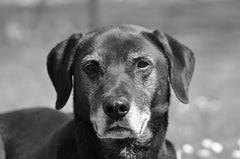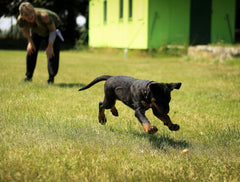
Without the tenacity of a soccer player, the dog might well have disappeared from Iceland. This small country big in heart and so deserving in the recent soccer Euro championship did not want dogs anymore. At least the dog was banished from the country in 1924 when an epidemic of echinococcus, a parasitic disease transmissible to the human species, spread. The health authorities then took the terrible decision to eliminate all the dogs on the island. However, there were not very many of them, because already around 1910 an epidemic of canine distemper brought by a dog imported from the United Kingdom had decimated a weak and inbred livestock which, due to the insularity of the country, was hardly protected from viruses and bacteria from outside. Banning dogs is one thing, enforcing the ban is another.
First, the ban could not apply to sheepdogs scattered in the countryside buried under the snow and hidden in the night half the year. On this island, which is on the edge of the Polar Circle, the snow arrives in autumn and only starts to melt as summer approaches. The wind blows all the time. It harasses the flora which remains very thin on the volcanic ground and bites the fauna which protects itself in a very thick fur given to it by evolution or natural selection.
In such inhospitable latitudes, dogs are much more at ease than the agents in charge of chasing them to enforce the rule. Especially since these agents, like almost everyone else, loved dogs too. However in the capital Reykjavik, which has 2/3 of the population, the regulations were strictly enforced: dogs were banned and had disappeared from the city. The prohibition was going to last 30 years. And Gudmunsson has arrived. Has come back, to be exact. All the glory and a dog with him. In 1953, this extraordinary man returned to his island to end his career. Albert Gudmunsson, a famous soccer player, after being spotted at Valur in Reykjavik, had played for Glasgow Rangers, Arsenal, Milan A.C., then Racing Club de Paris and finally OGC Nice. In his early thirties, he returned to his homeland for a final season at Valur Reykjavik. He came back with a German shepherd.
Intervention of the border police or the customs who oppose the entry of the dog on the territory. Albert Gudmunsson refuses to abandon his German shepherd. Gudmunsson knows someone in the government. Begin the palaver and negotiations, appeals to reason, reminders of the law. All right, all right, all right. For a soccer star, the government finally grants an exemption and Albert Gudmunsson makes a triumphant return to Iceland with a dog from France. Of course, the case received a lot of media attention and, based on the exemption granted to the Icelandic soccer star, some dog lovers also asked for the right to own a dog. "Why him and not us? » This is how cynophilia was born in Iceland. Not everything was easy or fast, but today, without being as prosperous as in continental Europe, this cynophilia exists. Copied on the French cynophilia. One sees few dogs, it is true, whether in the city or in the countryside.
The importation of the dogs remains subjected to a severe quarantine not to say dissuasive. It remains that the annual exhibition of Reykjavik gathers each year nearly 300 dogs. It is not so bad for a country of 300000 inhabitants who live on a very isolated island with marvellous landscapes, very open to tourists, but always closed to dogs. There is in France one dog for 7 to 8 inhabitants. In Iceland, less than one dog per 100 inhabitants. It is undoubtedly one of the lowest proportions in the world. We don't see dogs in the streets, we don't see dogs in the countryside either. Not stray, not even on a leash. Only one breed is of Icelandic origin: the Icelandic shepherd, of which, according to specialists, there are hardly more than 250 pure-bred dogs. They are found in Norway, the United Kingdom and the United States.
The country's first breed is, as almost everywhere else in the world, the German shepherd. To return to the soccer star Albert Gudmunsson, he entered politics after hanging up his boots. A Member of Parliament, then a minister, he ended his career as Iceland's ambassador to France from 1989 to 1993. When he died in 1994 at the age of 71, he received many tributes from the soccer and political worlds. France took Iceland out of the 2016 Euro soccer tournament, but on a regular basis and without rancor. The world of cynophilia in turn must remember that Albert Gudmunsson braved authority for the love of dogs. Jean-Yves Réguer





Comments
Leo, R U ok. I cannot find you on LinkedIn. So worried. Praying UR ok?
From 🧏🧔😺 of Chicago
I remember the day Albert Gudmunsson walked into my bookkeeping class at Skerry’s College in Glasgow. He was playing for Rangers Reserve then. Love at first sight. He was a very nice young man.